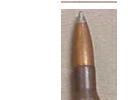unifund got me
Date: Mon, 07/14/2008 - 22:54
I have an acct on my credit report, the original creditor was chase, opened in 2001, when I was 19 and too dumb to understand the consequences of not paying. The original credit limit was $1000, and unfortunately I let it get behind, and stopped paying in 2004 with a debt with a debt of $1800. the debt was charged off by Chase in May of 2006 with a debt of $2700. I stopped receiving letters from Chase, and believed the matter to be closed, as Chase had legally written off the debt. About a month ago I received a letter from unifund attempting to collect a debt. I sent a Validation letter and they replied within 30 days. They sent copies of two statements from Chase (which I don't remember ever receiving from chase in the first place). I was under the impression that they needed to send a copy of the agreement to repay debt from original creditor. They state in their cover letter that the account has been accruing interest since the time of charge off and I now owe them just over $3000. So, My questions are: Guest - has there ever been any resolution to your situation? Also, can my account continue to accrue interest after it's been charged off; what specifically do they need to send me as validation, and does anyone see any way out of this? I would love to honor the my commitment, but I simply don't have the money to pay this debt. I don't make a lot of money. I still haven't admitted any responsibility for the debt, would it be worth a try to send a pay for removal letter, for $500 dollars? Any advice would be much appreciated, Thanks.
I don't think that's proper validation. I am battling it out wit
I don't think that's proper validation. I am battling it out with Unifund right now, they are notorious for charging outrageous interest rates and fees. One of the arguments I have used in court against Unifund is they are NOT legally permitted to charge interest until they have a judgment against me, they are only allowed to sue for the amount of the debt when they purchased it. So far, my argument is standing up well in court. I live in Ohio, and right off the top of my head I can't remember if that was a state or Federal law I obtained regarding interest. I am thinking if you make a settlement offer you are basically admitting the debt is yours. Unifund is more crooked than a dogs hind leg, so watch your back with them. :shock:
Welcome to the community jimggggg. First if I may ask you a cou
Welcome to the community jimggggg.
First if I may ask you a couple of questions.
1. What state do you live in?
2. You said the last time you made a payment was in 2004, do you remember the month?
Regarding interest interest may be continue to accrue if provided for in the contract or if your state legislature allows it. If they don't have a copy of the original contract then they cannot continue to access interest at the original or any modified rate, they would have to go by your state laws.
To check your state laws you can look under your states legislative website. It would probably be under uniform commercial code. If it goes to court keep in mind that affidavits are hearsay and can be objected to as such without the presence of the signer to testify to it's authenticity.
IMO, that $500 would be better spent for an attorney. Trying to
IMO, that $500 would be better spent for an attorney. Trying to go it on your own can be VERY consuming, both in time and emotionally. Been there, done that. Once I got an atty., it was like getting a new lease on life.
Good luck with UNIFUND
thanks
Thanks to all for the information, I live in Illinois, and the last payment was in 12/2004. Statute of limitations in Illinois is 10 years for written contracts. If I wait until 30 days after I sent my validation letter, can I then demand removal from my CR because they didn't send proper validation? Please let me know if anyone has any ideas. Thanks.
Remember that since your DV will be deemed untimely based on the
Remember that since your DV will be deemed untimely based on them sending statements to the wrong address that they do not have to respond nor do collection efforts have to cease. Since you are still well w/in SOL, your DV may bring you to the top of their list. Tread softly.
Credit cards are OPEN accounts, not written. SOL is 5 years for
Credit cards are OPEN accounts, not written. SOL is 5 years for IL.
???????The test for whether a contract is written under
???????The test for whether a contract is written under the statute of limitations in Illinois is not whether the contract meets the requirements of the Statute of Frauds, but whether all essential terms of the contract, including the identity of the parties, are in writing and can be ascertained from the written instrument itself.??????? Brown v.
Goodman, supra, 147 Ill. App. 3d at 940-41 (emphasis added).
If any essential element of the contract is omitted from the writing, ??????????????then the contract must be treated as oral for purposes of the statute of limitations.??????????????? Armstrong v. Guigler, 174 Ill. 2d 281, 288, 673 N.E.2d 290, 295 (1996); accord, Toth v. Mansell, 207 Ill. App. 3d 665, 669, 566 N.E.2d 730, 733 (1st Dist. 1990); Schmidt v. Niedert,
45 Ill. App. 3d 9, 13, 358 N.E.2d 1305 (1st Dist. 1976).
???????Illinois courts give a strict interpretation to the meaning of a written contract within the statute of limitations. For statute of limitation purposes, a contract is considered to be written if all the essential terms of the contract are in writing and are ascertainable from the instrument itself.??????? Brown, 147 Ill. App. 3d at 939. If the agreement
necessitates resort to parol testimony to make it complete, the law is that in applying the statute of limitations, it must be treated as an oral contract. Toth, 207 Ill. App. 3d at 671.
???????The law is clear in Illinois that to constitute a written contract under the statute of limitations, the written instrument itself must completely identify the parties to the contract.??????? Brown, 147 Ill. App. 3d at 940 (emphasis added); accord, Railway Passenger & Freight Conductors???????? Mutual Aid & Benefit Association v. Loomis, 142 Ill.
560, 32 N.E. 424 (1892); Munsterman, 106 Ill. App. 3d at 238-39; Pratl v. Hawthorn-Mellody Farms Dairy, Inc., 53 Ill. App. 3d 344, 347, 368 N.E.2d 767, 770 (1st Dist. 1977); Matzer v. Florsheim Shoe Co., 132 Ill. App. 2d 470, 472, 270 N.E.2d 75 (1st Dist. 1971); Wielander v. Henich, 64 Ill. App. 2d 228, 231-32, 211 N.E.2d 775, 776 (1st Dist. 1965).
???????The issue is not whether the identity of [the parties] can be readily ascertainable from subsequent writings, the issue is whether the identity of [the parties] can be readily ascertained??????? from the alleged written contract ???????so as to avoid the resort to parol evidence.??????? Brown, 147 Ill. App. 3d at 940.
If testimony is necessary to establish any of these elements, the contract is treated as oral, and subject to the five-year statute. Wielander v. Henich, 64 Ill.App.2d 228, 231, 211 N.E.2d 775, 776 (1st Dist. 1965); Armstrong, 174 Ill. 2d at 288.
In the parol evidence cases, the dispositive question is whether evidence of oral representation is necessary to establish the existence of a written contract. If such evidence is required, then the contract is treated as
oral for purposes of the statute of limitations. In other words, where a party is claiming a breach of written contract, but the existence of that contract or one of its essential terms must be proven by parol
evidence, the contract is deemed oral and the five-year statute of limitation applies.
You can read full document here:
http://www.edcombs.com/CM/Custom/col...ndefense07.pdf
statute of limitations
the debt was originally a credit line for an overdraft protection acct. not a credit card, does this still count as an open acct.?
From Nascar's post above, it would appear that it counts as a wr
From Nascar's post above, it would appear that it counts as a written contract, assuming that your original documents identified the two parties involved (you and the creditor).







